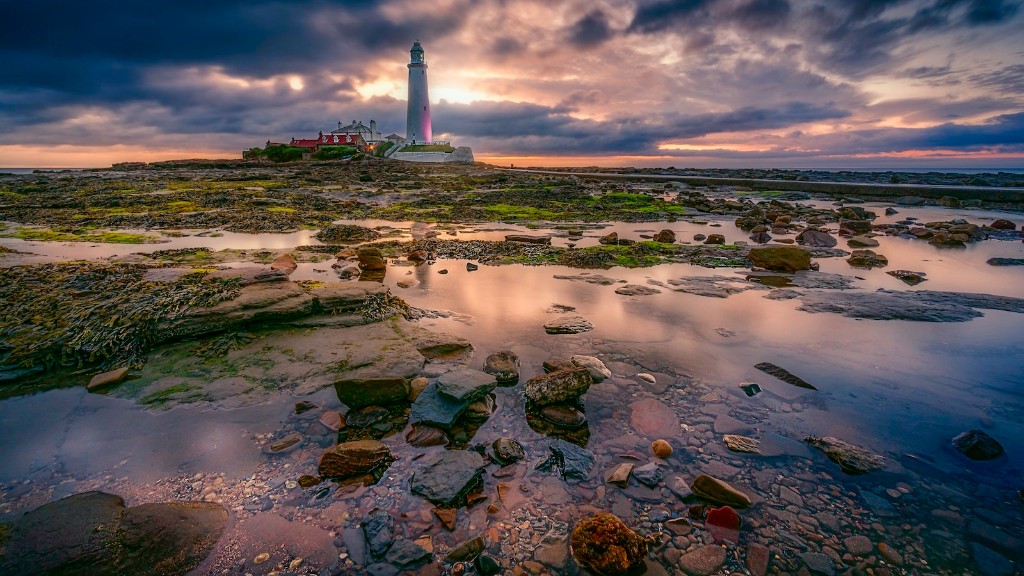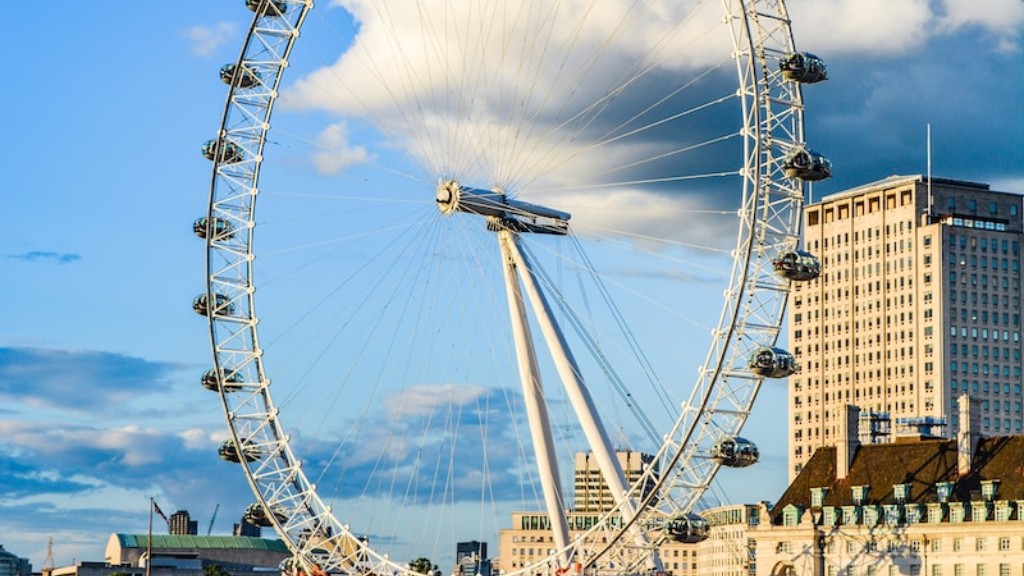Is Scotland a part of Britain or Great Britain? This is a question that has been asked many times by many people and it is a difficult one to answer. The question is complicated by the fact that Britain and Great Britain have different definitions and meanings. The main thing to understand is that the two terms are often used to describe the same thing, but not always.
When the terms “Great Britain” and “Britain” are used to refer to the same thing, it generally refers to the three countries on the island of Great Britain – England, Wales and Scotland. Great Britain is a political union of these three countries. This means that each country has its own government and laws but Britain is considered to be one country – part of the United Kingdom.
The name ‘Great Britain’ was first used in 1604 by James I and refers to the larger island of Britain that contains England, Scotland and Wales. It is the formal name of the island and is often used when talking about the United Kingdom as a whole. Britain is a term used to refer to the whole of Great Britain. It is sometimes used informally, but many people also use Britain to mean the United Kingdom, which includes the independent country of Ireland.
So, when someone refers to Britain or Great Britain, they are generally talking about England, Wales and Scotland. However, the terms Britain and Great Britain are not always used to refer to the same thing. The difference between Britain and Great Britain is that Britain can also refer to all the countries that make up the United Kingdom, including both Northern Ireland and the Republic of Ireland. So, when someone refers to Britain, they could be referring to the United Kingdom, which includes Scotland, Wales, England, Northern Ireland and the Republic of Ireland.
So to answer the question of whether or not Scotland is a part of Britain or Great Britain, the answer is yes. Scotland is a part of Great Britain, which refers to the island of Britain that contains England, Wales and Scotland. It is also a part of the United Kingdom, which includes Scotland, Wales, England, Northern Ireland and the Republic of Ireland.
History of Scotland
The history of Scotland and its relationship to Britain and Great Britain is an interesting one. Scotland has been an independent country in the past and has had its own separate history from England, Wales and other countries. In the year 1707, Scotland and England formed a union and Scotland became a part of the political union of Great Britain. However, Scotland has maintained its own parliament and legal system and has had many differences culturally from other countries on the island.
Scotland has also had its own identity and culture in recent decades and many people in Scotland who consider themselves to be Scottish and not British. This feeling is partially due to the fact that Scotland has had a different relationship with its own government and laws. In 1997, Scotland held a referendum on independence which resulted in a majority of Scots voting to remain part of the union.
The debate around Scotland’s relationship to Britain and Great Britain is an ongoing one. Many people in Scotland want more autonomy from the union and have been pushing for independence as well. There are also many people who believe that Scotland should remain a part of Britain and Great Britain.
Geography of Scotland
Scotland is a country within the United Kingdom situated on the northern part of the island of Great Britain. It has the highest mountain in the UK and the largest loch, along with many other scenic and beautiful landscapes such as the Cairngorms, which form part of the Grampian Mountains. Scotland is also known for its many castles, whisky distillers, and lochs, as well as its national animal, the Unicorn.
Scotland is divided into three regions – the Highlands, the Lowlands, and the Islands – each with its own distinct culture and geography. The Highlands, in the north of Scotland, are the most sparsely populated region with some spectacular scenery. The Lowlands are the most populous region and are made up of rolling hills and flat plains. The Islands are located in the west of Scotland and include the Shetland and the Hebrides.
Scotland has many cities that are well known all around the world, including Edinburgh, Glasgow, Inverness and Aberdeen. Scotland also has many small towns and villages, some located in remote areas or on the coast. One of the most famous Scottish towns is Oban, located on the west coast.
Culture of Scotland
Scotland has its own unique culture and is well known for its traditional music, its traditional sports such as rugby and shinty, and its traditional food such as haggis. Scotland is also known for its unique literature, with famous authors such as Robert Burns, Sir Walter Scott and J.M. Barrie coming from Scotland. The national flower of Scotland is the thistle and the national instrument is the bagpipes.
Scotland is also known for its strong sense of national identity, with the Scots seeing themselves as separate from the rest of the United Kingdom. This is most likely due to the different history that Scotland has had compared to the other parts of the island of Great Britain. The Scots have retained their sense of identity and their culture is still very distinctive from the other parts of the United Kingdom.
Scotland is also known for its stunning scenery and its rugged coastline. This beautiful coastline, along with Scotland’s many lochs, mountains, and islands, makes it an ideal destination for tourists. The pleasant climate and stunning landscape have made Scotland a popular holiday spot for many people around the world.
Economy of Scotland
Scotland has a strong and diverse economy that is largely based on industries such as oil, whisky, financial services, electronics, renewable energy, life sciences, and food and drink. The tourism industry is also very important to the Scottish economy. Scotland has a very low unemployment rate, which is one of the lowest in the EU.
Oil and natural gas are the two main contributors to Scotland’s economy, making up around half of the country’s GDP. The oil industry has been in decline in recent years due to the global oversupply of oil and gas, however it is still an important part of the Scottish economy. Whisky is another important industry in Scotland and is the country’s largest export product. Scotland is home to some of the biggest and most renowned whisky distilleries in the world.
Scotland is also a leader in the field of renewable energy. The country produces more than 30% of its electricity from renewable sources and is world’s leader in marine energy. Scotland has ambitious plans to produce 100% of its electricity from renewables by 2020.
In recent years Scotland has also become a leader in financial services and its capital city, Edinburgh, is one of the top four global financial cities. Scotland is a major centre for banking and insurance and is home to many financial institutions, making it a major player in the global financial system.
Politics of Scotland
Scotland is a part of the United Kingdom and it is represented in Parliament in Westminster. Scotland has its own devolved government in the form of the Scottish Parliament, which is responsible for many areas of policy such as health, education, justice and transport. Scotland also has its own unique legal system as well as its own laws.
Although Scotland is still part of the United Kingdom, it has a strong sense of national identity and there have been calls for independence from some quarters. Scotland held a referendum in 2014 on independence which resulted in a majority of Scots voting to remain part of the union.
The debate over the future of Scotland and the United Kingdom continues to be an important political issue however, with many people in Scotland wanting the country to become independent. Scotland also has its own political parties such as the Scottish National Party (SNP) which advocates for independence, and these parties play an important role in Scottish politics.
Conclusion
The question of whether Scotland is a part of Britain or Great Britain is complex and the answer depends on the context in which it is asked. But generally speaking, Scotland is a part of Great Britain and the United Kingdom. It is an independent country with its own unique culture and landscape, which has both its own parliament and laws and is part of the political union of Great Britain.





